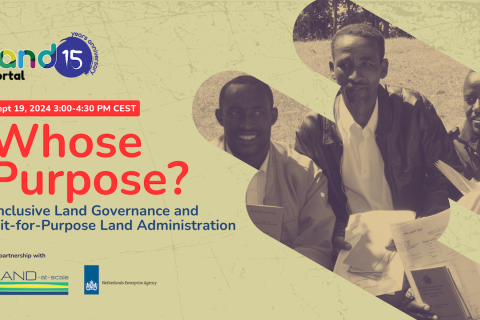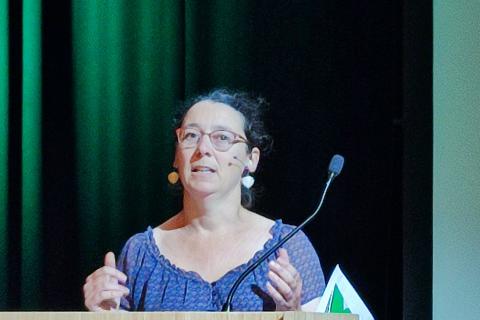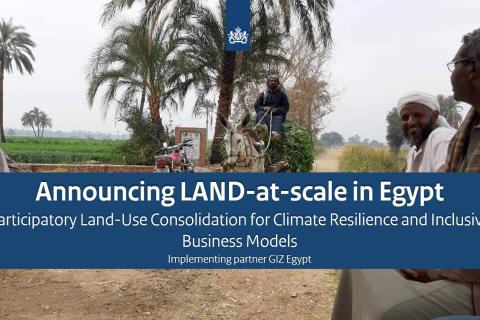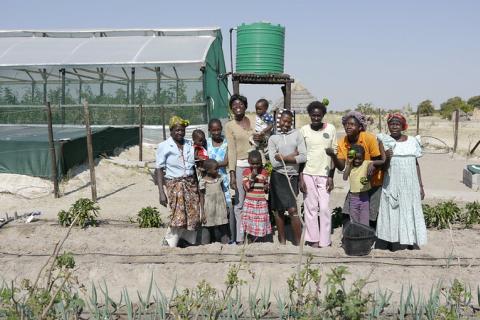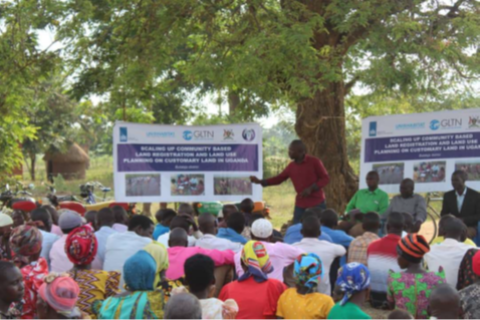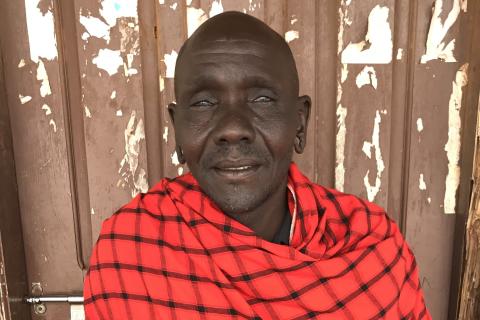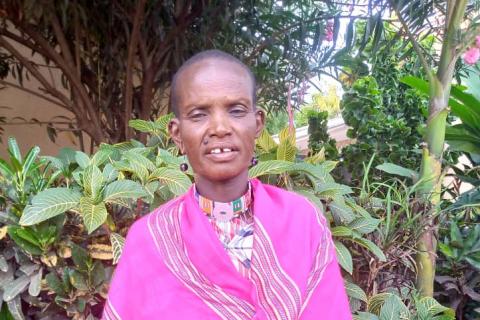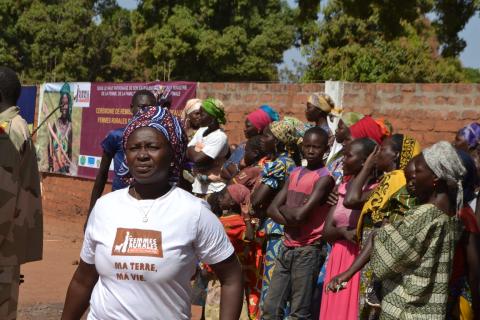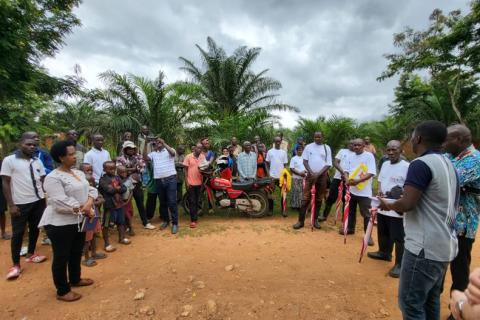Inclusive Land Governance and Secure Land Tenure Rights
Keynote Speech from Morgan Ody at the IoS Fair Transitions - LANDac Conference & Summit
Participatory Land-Use Consolidation for Climate Resilience and Inclusive Business Models in Egypt: Announcing the lauch of LAND-at-scale in Egypt
We are happy to announce the launch of the project Participatory Land-Use Consolidation for Climate Resilience and Inclusive Business Models in Egypt, which started in May 2024 and will run until October 2026. The project aims to reduce land fragmentation through participatory land use consolidation in order to increase the productivity and income of smallholder farmers, and to strengthen the institutional capacity of key institutions on land governance aspects.
Population Growth: The Implications for Land Tenure and Food Security in Communal Areas
This blog discusses how the increase in population presents a challenge for land tenure management in Namibia’s communal areas.
Understanding the link between Climate & LAND-at-scale country projects - Community-Based Approach on Wetland Management Planning in Butaleja District Uganda
As part of a scoping study titled Land Governance for Climate Resilience: A review and case studies from LAND-at-scale projects headed by Richard Sliuzas, Emeritus Professor, University of Twente, GLTN dove into the links between climate and land governance in the ‘’Scaling up community-based land registration and land use planning on customary land in Uganda’’ project. This case study highlights experiences from the community-based wetland management planning approach in Butaleja, Uganda, focusing on how the approach is addressing land governance issues and contributing to community climate resilience.
48 Hours in Wales
What I learned about land rights from people who don't work in land rights
People are hungry for this knowledge
By Peter Sangeyon, Gender and Land Champion, WOLTS Project Tanzania
From 1995 to 2005 I was the village chairman, and I was a ward councillor for ten years after that. I was very pleased when the community selected me to be a WOLTS gender and land champion.
I am not afraid to speak up
Since engaging in WOLTS training, gender and land champion Sindooi is actively supporting women and widows' inheritance rights in her community.
LAND-at-scale Chad: Collective action to bring land to the national political agenda
Chad is at the verge of an emerging land tenure crisis. As observed in many countries in Africa, formal and customary tenure systems overlap. Customary tenure systems, that generally prevail in rural areas, differ from region to region, with each its own needs and practices. Land conflicts are abundant, caused by degradation and transformation of land surfaces caused by climate change, as well as land investments by domestic investors with disputed legitimacy.
LAND-at-scale Burundi: The need for a unified vision for inclusive and sustainable land governance
Burundi has the world’s highest hunger score and around 45 percent of the population is affected by food insecurity. The country copes with increasing scarcity of land as a result of increasing population size, returnees and IDPs and climate change. With the majority of Burundians depending on agriculture for their food and livelihoods, land scarcity makes this reliance on agriculture precarious. This pressure on land causes elevated levels of land disputes with over 55% of all court cases being related to conflicts over land.
The complexities of measuring the impact of land projects
This data story reflects on the complexities of measuring the impact of land governance projects and summarize some of the best practices on impact evaluation from the well-known guidelines on the topic.

